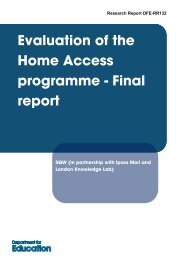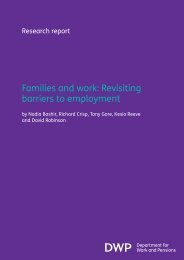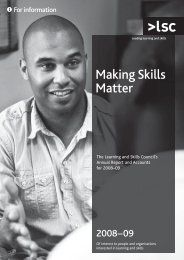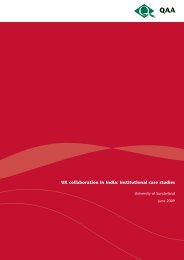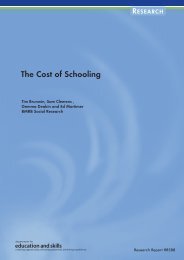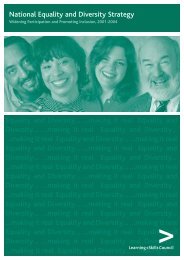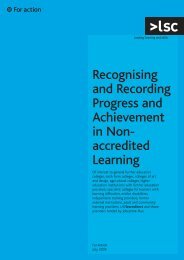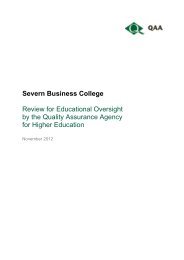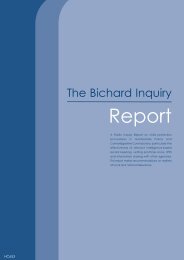Faiths and further education - Church of England
Faiths and further education - Church of England
Faiths and further education - Church of England
- No tags were found...
You also want an ePaper? Increase the reach of your titles
YUMPU automatically turns print PDFs into web optimized ePapers that Google loves.
<strong>Faiths</strong> <strong>and</strong> Further Education:A H<strong>and</strong>bookDrafting anAgreement or Memor<strong>and</strong>um116The key areas that are important in the negotiation <strong>of</strong> anyagreement between the college <strong>and</strong> the chaplaincy are as follows:• funding• accommodation• resourcing• staff selection• team building• management <strong>and</strong> accountability• relationships with other staff <strong>and</strong> management.Funding, accommodation<strong>and</strong> resourcing the chaplaincy117Consider the following key areas.• Will the college be able to contribute (at least in part) to thesalary <strong>of</strong> the team leader <strong>and</strong>/or part-time hours for the teammembers? It might be appropriate for the principal <strong>of</strong> the collegeto be approached by local faith groups on this point.• Are there possibilities for partnership funding?• Will the college be able to contribute to funding the chaplaincy’sexpenses for example, for staff development, attendance atannual conferences <strong>and</strong> so on?• Will the college provide basic resources, for example, notice boarddisplays, h<strong>and</strong>outs, business cards, emails <strong>and</strong> webpages, collegemobile phones <strong>and</strong> computers?Staffing <strong>of</strong> chaplaincies118Staffing is an important issue which can determine the success orfailure <strong>of</strong> the chaplaincy. In staffing the chaplaincy, be it oneindividual or a team, some fundamental questions have to beasked.Finding the people for your team119There are important preliminary questions to be answered.• How are the right people for the chaplaincy or team to be found?• Are there funds to allow advertisement?• Who, if anybody, is going to be the employer? the college? asponsoring faith body? What is the status <strong>of</strong> volunteer members?• Are formal interviews required? Who should be involved?120There may be contractual issues <strong>of</strong> which to be aware, <strong>and</strong> theseshould be discussed with college management. Faith bodies mayalso have guidance in this area. For example, in a Catholic context,these issues have been addressed in a recent publication <strong>of</strong> theAssociation <strong>of</strong> Catholic Chaplains in Education (ACCE) (seewww.acce.org.uk).Job descriptions121Job descriptions are important for both individuals <strong>and</strong> thecollege(see Annex F).The process <strong>of</strong> drawing up a job descriptionensures that all those in the college <strong>and</strong> beyond who are involved inthe chaplaincy can have an input into what individuals (<strong>and</strong> theteam) are required to do. It also <strong>of</strong>fers an objective st<strong>and</strong>ard bywhich performance can be monitored <strong>and</strong> assessed.A suggestedframework could be:• job title• who the postholder is responsible to• the rationale for the post• key areas <strong>of</strong> responsibility: spiritual, pastoral, curriculum, externalliaison• working conditions <strong>and</strong> salary.• On what basis are members to be recruited <strong>and</strong> selected?• Are they to represent the faiths found among the student body?• What is to happen if likely recruits cannot be found for all thefaiths represented in the college?




